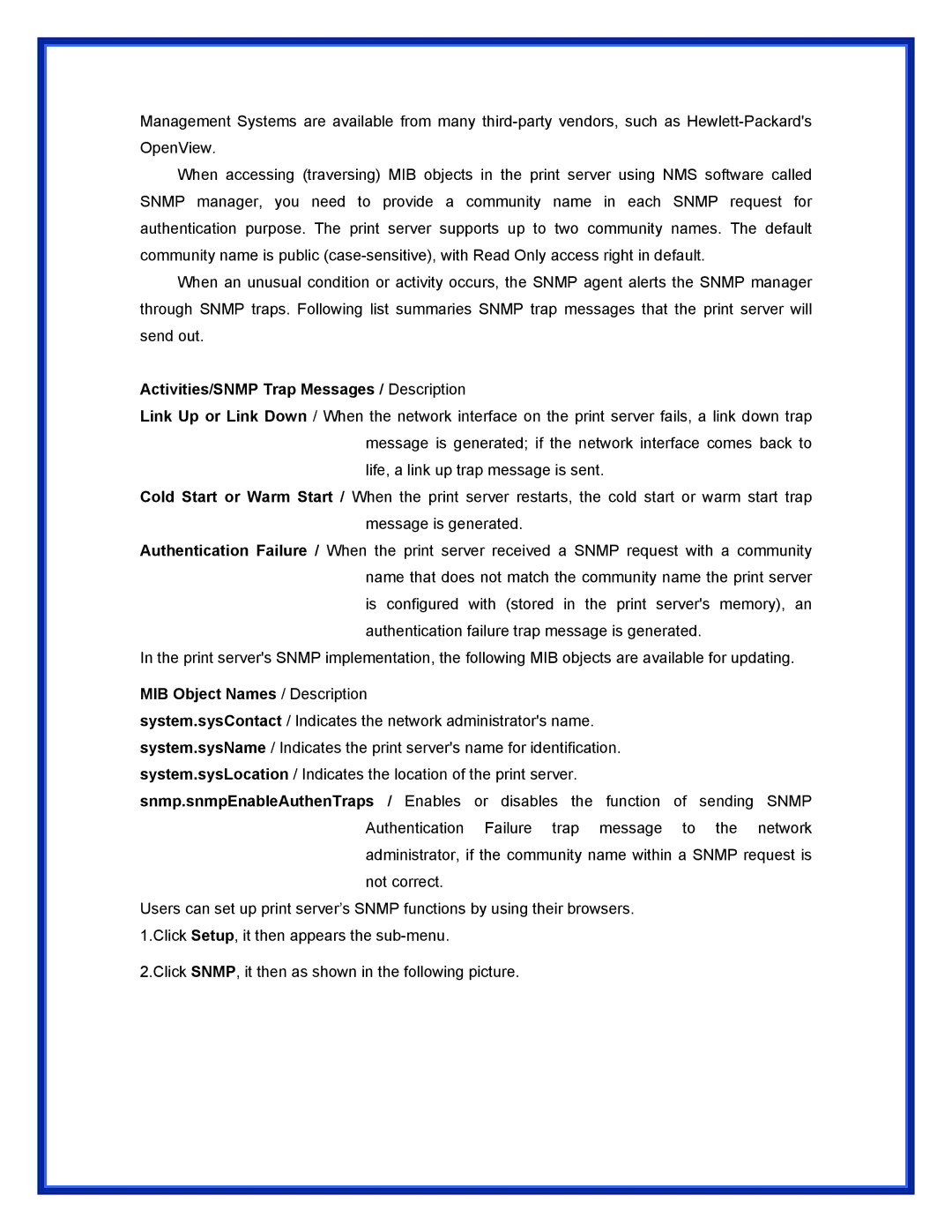
Management Systems are available from many
When accessing (traversing) MIB objects in the print server using NMS software called SNMP manager, you need to provide a community name in each SNMP request for authentication purpose. The print server supports up to two community names. The default community name is public
When an unusual condition or activity occurs, the SNMP agent alerts the SNMP manager through SNMP traps. Following list summaries SNMP trap messages that the print server will send out.
Activities/SNMP Trap Messages / Description
Link Up or Link Down / When the network interface on the print server fails, a link down trap message is generated; if the network interface comes back to life, a link up trap message is sent.
Cold Start or Warm Start / When the print server restarts, the cold start or warm start trap message is generated.
Authentication Failure / When the print server received a SNMP request with a community name that does not match the community name the print server is configured with (stored in the print server's memory), an authentication failure trap message is generated.
In the print server's SNMP implementation, the following MIB objects are available for updating.
MIB Object Names / Description
system.sysContact / Indicates the network administrator's name. system.sysName / Indicates the print server's name for identification. system.sysLocation / Indicates the location of the print server. snmp.snmpEnableAuthenTraps / Enables or disables the function of sending SNMP
Authentication Failure trap message to the network administrator, if the community name within a SNMP request is not correct.
Users can set up print server’s SNMP functions by using their browsers. 1.Click Setup, it then appears the
2.Click SNMP, it then as shown in the following picture.
